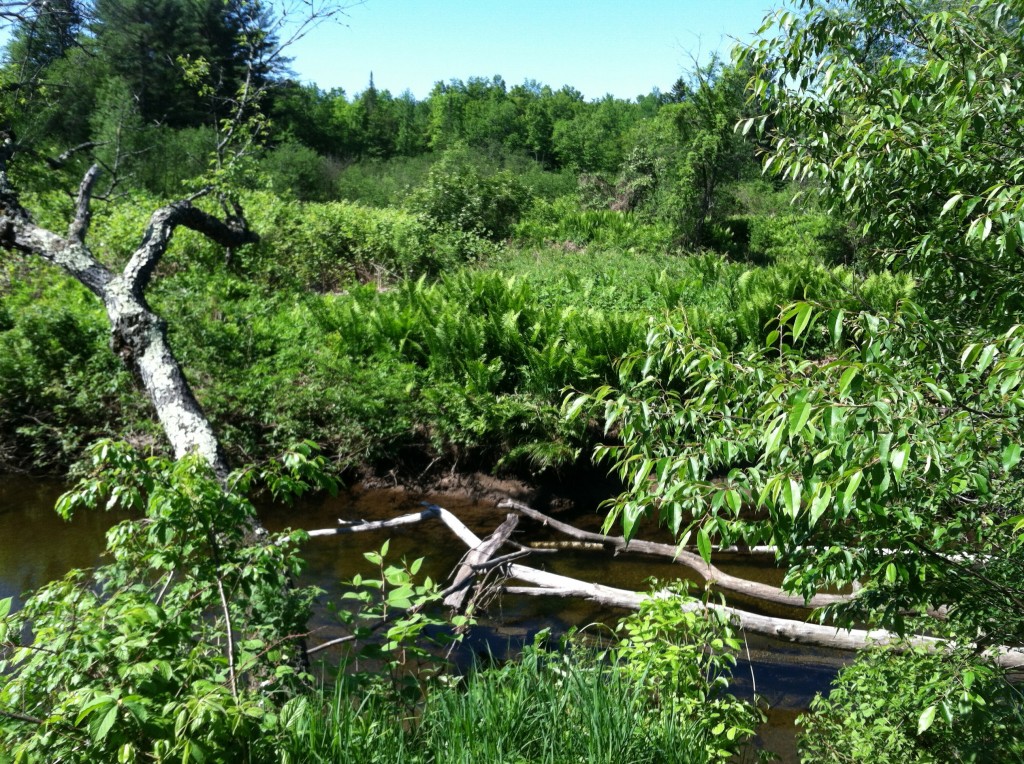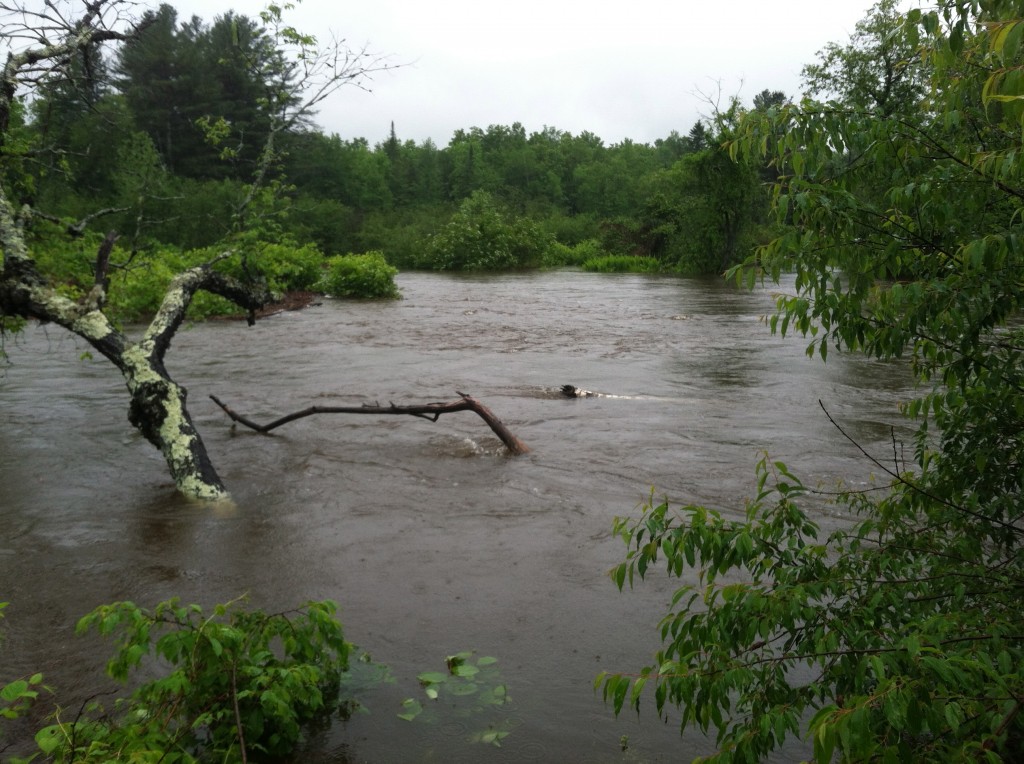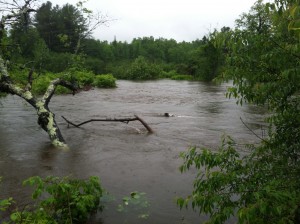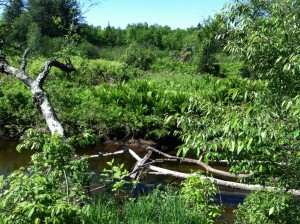Spring Freshet
categories: Cocktail Hour / Getting Outside
5 comments
.
We get ’em in Maine spring and fall, these days of hard rain and then the floods. The old timers called them freshets. A famous fall one was the pumpkin freshet of 1868, when high water took out all the Sandy River bridges (a tradition–quite a few have gone down over the years) and stripped the fields of pumpkins, which took off in the thousands and filled the ponds behind dams downstream. Consensus was to fish them out and divide them up among the farmers. I took the photo above the other day in high spirits and sunshine and low water, just a scruffy spot over a beaver canal, Temple Stream back behind and out of sight. t I took the photo below 24 hours ago after wading up to my thighs where the path used to be, Temple Stream ascendant. It has not stopped raining since. I could get a shot of even higher water, but I’d have to swim.
.






I was delighted to discover this photo and your discussion of the Pumpkin Freshet of 1868, which I’m just beginning to research. One reference puts it in 1859, and another 1869, though maybe there were several? The one I’m intrigued by is when the final fall pumpkin harvest couldn’t be brought in, so pumpkins floated down the Sandy River, where, eventually, good neighbors returned the pumpkins to Farmington to be divided among the farmers.
Any ideas for further details?? I’m contacting the Farmington and the Maine Historical Societies, but would love any and all leads. Thanks! Dandi
Hi Dandi–The History of Farmington is well covered in the Farmington Library, which I used extensively in writing Temple Stream. I’m away from my books, but Temple Stream has a thoroughgoing bibliography, and quite a bit of local history. If you need a copy of Temple Stream email me through my website, or contact Farmington Library. There were a number of very bad floods through the years here. Fairbanks bridge was taken out 6 or 7 times!
I thought only the spring floods were called freshets. I think I’m relying here on Roderick Haig Brown….
Go with Roderick. But I think the word picks up regional inflections. Here it’s something bigger than a gullywasher and smaller than a flood, and can come after heavy, heavy rain.
You at the BEA. As we speak. Anyway the sense I had of the word was the river risen from the runoff of the snows and the usual rains in spring. So that you might say the spring freshet(s) had passed, or were over. But it could be I mistook that usage as its exclusive meaning when it isn’t so.